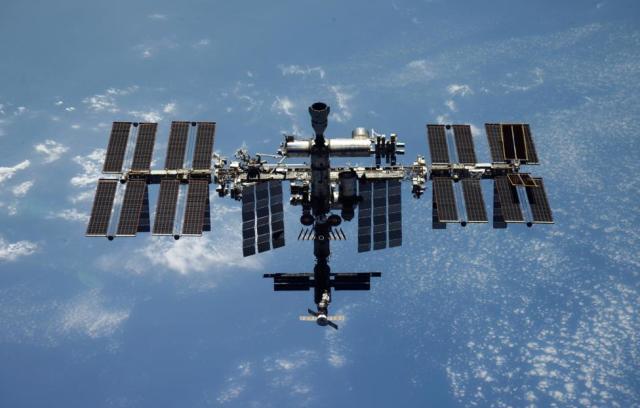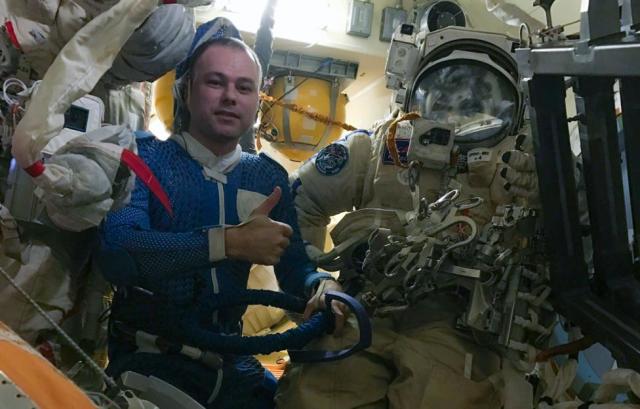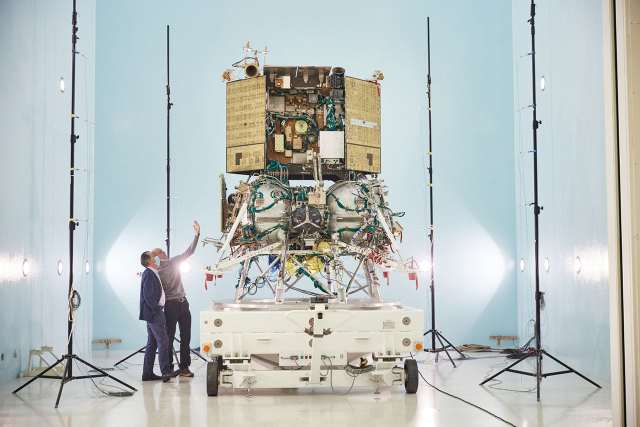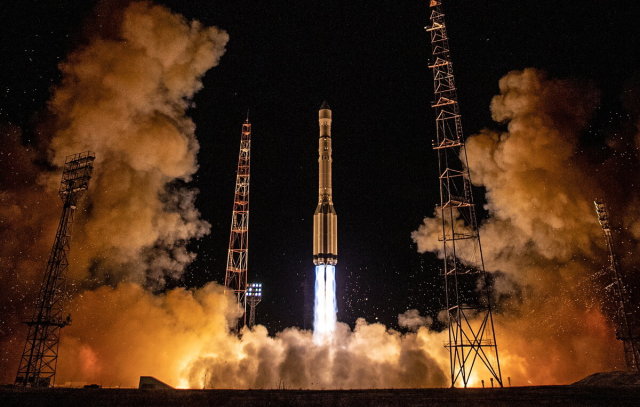TASS on the cosmic results of the yearIn 2022, Russian cosmonautics faced a number of global changes — the change of the Director General of Roscosmos, the imposition of sanctions, the refusal of Europeans to cooperate.
Despite this, the state corporation continues to cooperate with international partners — in particular, an agreement was signed with China on joint work on the international scientific lunar station, and with the United States on cross—flights to the ISS. TASS — about how this year has passed for Russian cosmonautics and how it will develop.
100% success rate
This year, the number of launches was lower than last year, but just like in 2021, all of them were successful. A total of 22 launches were carried out from the Baikonur, Vostochny, Plesetsk and Kuru cosmodromes. According to TASS in the state corporation, the success rate of launches over an average of five years was 99%.
"The annual success rate of launch vehicles over the past four years has been 100%. At the same time, the value of the target indicator "Launch success in an average of five years" was 99%," the state corporation noted, emphasizing that domestic launch vehicles ensure the success of spacecraft launches at the level of the world's best samples.
One of the most high-profile events this year was the change of the CEO of Roscosmos. In July, the state corporation was headed by Yuri Borisov, replacing Dmitry Rogozin in this post. The new CEO of Roscosmos highlighted the transition to serial production of satellites, the commercialization of space services, the creation of a new orbital station and others as priorities.
Serial production of satellites will help to implement the Sphere program, which involves the launch of communication satellites and remote sensing of the Earth. In total, the program will include five telecom satellite groupings and five more - observations. The first satellite-demonstrator "Skif-D" under the "Sphere" program went into orbit in September from the Vostochny cosmodrome.
Consent Station
In 2022, the space industry faced sanctions from Western countries due to a special operation. In particular, the European Space Agency refused to launch a joint mission to Mars, the German eROSITA telescope at the Spektr-RG space observatory was turned off (the Russian ART-XC telescope continues to work). And in November, in an interview with TASS, Yuri Borisov said that ESA had completely refused to cooperate with Russia.
For its part, the United States has banned the supply of radiation-resistant electronic component base, which is used in the production of satellites. Despite this, contacts between Roscosmos and NASA remain, primarily through the International Space Station (ISS). So, after depressurization of the radiator of the instrument-assembly compartment of the Soyuz MS-22, docked to the ISS, the astronauts helped to inspect the outside of the ship using the cameras of the Canadarm manipulator. "Send greetings to the entire American team, they showed themselves in this situation with dignity, extended a helping hand. But I hope that we will manage on our own," Borisov said during a conversation with the Russian crew — cosmonauts Sergei Prokopyev, Dmitry Petelin and Anna Kikina.
 |
| The International Space Station. |
| Source: Roscosmos State Corporation Press Service/ TASS |
According to the head of Roscosmos, the ISS crew sets an example to the whole world how to work together in the most difficult situations. "Let many politicians learn from you," Borisov added.
Academician of the Russian Academy of Cosmonautics named after K.E. Tsiolkovsky Igor Marinin expressed the opinion to TASS that the Russian Federation and the United States are tied to the ISS project. "I would apply a saying here: where will we go from a submarine. As long as the ISS is functioning, cooperation will continue, because without Russia and the United States, the station cannot exist. That is, we are tied very closely in this project, and no matter how much we want or do not want to cooperate, we have to do it," he stressed.
In turn, cosmonautics historian Alexander Zheleznyakov, in an interview with TASS, noted the good partnership between representatives of Russia and the United States on the ISS. "I think that the cooperation of Americans and Russians, at least in the ISS project, will not go anywhere," the specialist said. — Take the situation with the Soyuz MS-22 spacecraft, where there was an emergency situation in the cooling system. The Americans showed their best side in this situation: they helped our astronauts to photograph the place of a possible refrigerant leak and offered, if necessary, to return the crew of the ship to Earth with the help of American technical means — the Dragon ship. I think that this cooperation, such partnerships and mutual assistance will continue in the future. The same Americans may find themselves in a similar situation."
Another example of cooperation was the conclusion of an agreement on three cross-flights of astronauts on American ships, and astronauts on Russian "Unions". For the first time, Roscosmos cosmonaut Anna Kikina went to the ISS on Crew Dragon. According to Zheleznyakov, cooperation between Russia and the United States in the field of cross-flights, as well as Russia's decision to extend work on the ISS until 2028, are a good sign. "All this suggests that it is better to cooperate in space than to quarrel and disperse to their national apartments," Zheleznyakov believes.
Cosmonaut's opinion
In 2022, two TASS special ships visited the orbit. In March, cosmonaut Oleg Artemyev went to the ISS, in September, before returning to Earth, he handed over the journalistic shift to his colleague Dmitry Petelin.
 |
| TASS special correspondent, Roscosmos cosmonaut Dmitry Petelin with an Orlan-ISS spacesuit. |
| Source: Dmitry Petelin/ TASS, ISS |
Petelin considers space flight to be the main event not only of the year, but also of his life. According to him, this is a goal that he has been working towards for decades. "In general, cosmonautics can be noted, of course, the long-awaited launch of the Orion unmanned mission around the moon. The Spectrum-RG and James Webb space observatories also showed encouraging results," Petelin noted.
The cosmonaut considered the damage to the radiator of the instrument-assembly compartment of the Soyuz MS-22 spacecraft to be the most extraordinary event. "Undoubtedly, this has made adjustments to the plans of the current expedition," he said.
Among the plans for the future, Petelin highlighted the completion of work on retrofitting the multipurpose laboratory module "Science" and the arrival of the American Starliner spacecraft to the ISS.
Return to the Moon
This year, the Russian Federation was unable to launch a mission to the moon in modern history due to the inconsistency of the characteristics of the Doppler speed and range meter (manufactured by the Vega concern of Rostec State Corporation) with the requirements of the terms of reference. By the end of the year, the state corporation informed TASS that the device had passed the entrance control and was installed on the spacecraft.
The launch window for sending Luna-25 is set for July-August 2023. Experts unanimously call this the main event of the Russian space industry in 2023. The station is designed to determine with the help of a probe the optimal sites for landing subsequent spacecraft, as well as conducting contact studies of the surface in the area of the south pole of the Moon.
"This is our first return to the moon after 1976 — a grand event," said Igor Marinin, academician of the Russian Academy of Cosmonautics.
 |
| Luna-25 was supposed to go to the Earth's satellite back in 2015, but the launch has been postponed for seven years. |
| Source: S. P. Korolev RSC Energia |
Cosmonautics historian Alexander Zheleznyakov noted that the lunar mission will be the most anticipated and long-awaited event only for Russian cosmonautics, but not for the world. "The flight should mark the return of our cosmonautics to the lunar program. If it takes place, which, of course, I really want and wish to the specialists who work on the station, it will be the most significant event of 2023. But this is only for Russian cosmonautics. Unfortunately, this will be an ordinary event for the world cosmonautics," the specialist noted.
Automatic missions will allow you to explore the area where an International scientific lunar station may appear in the future, which the Russian Federation will develop together with China. This year, the head of Roscosmos, Yuri Borisov, in an interview with Rossiya-24, announced the signing of an agreement with the Chinese side on joint work on the International Scientific Lunar Station (MNLS).
Russia is in the top three
Experts believe that at this stage it is difficult to call Russia an unambiguous leader in the global space industry. However, in their opinion, it is incredibly difficult to identify which of the countries is now the leader of cosmonautics, and who is lagging behind.
"Cosmonautics is not something whole, there are many areas of activity in it, and in some areas, for example, in manned cosmonautics, Russia confidently shares first and second place. As for navigation systems, we are also working quite effectively here. We are a little behind in Earth remote sensing systems, but there are already plans to develop them in the near future and increase our grouping. With regard to e-commerce systems and similar multi—satellite systems, Russia, of course, is still lagging behind the United States and China, - says Alexander Zheleznyakov. — But if we take it in a comprehensive way, then we are in the top three. I don't want to make any kind of distribution by places, but still Russia is still one of the leaders in space."
So far, there are only three countries in the world that have demonstrated the ability to send people into space — Russia, the United States and China. "China, of course, reached manned cosmonautics independently, and the United States used our services for 11 years, they had nothing to carry astronauts to the ISS. So here, perhaps, Russia is ahead, although the Americans have made a more modern ship, but our Soyuz once again confirms its reliability," says Igor Marinin.
Ekaterina Moskvich, Ekaterina Adamova, Dmitry Petelin

